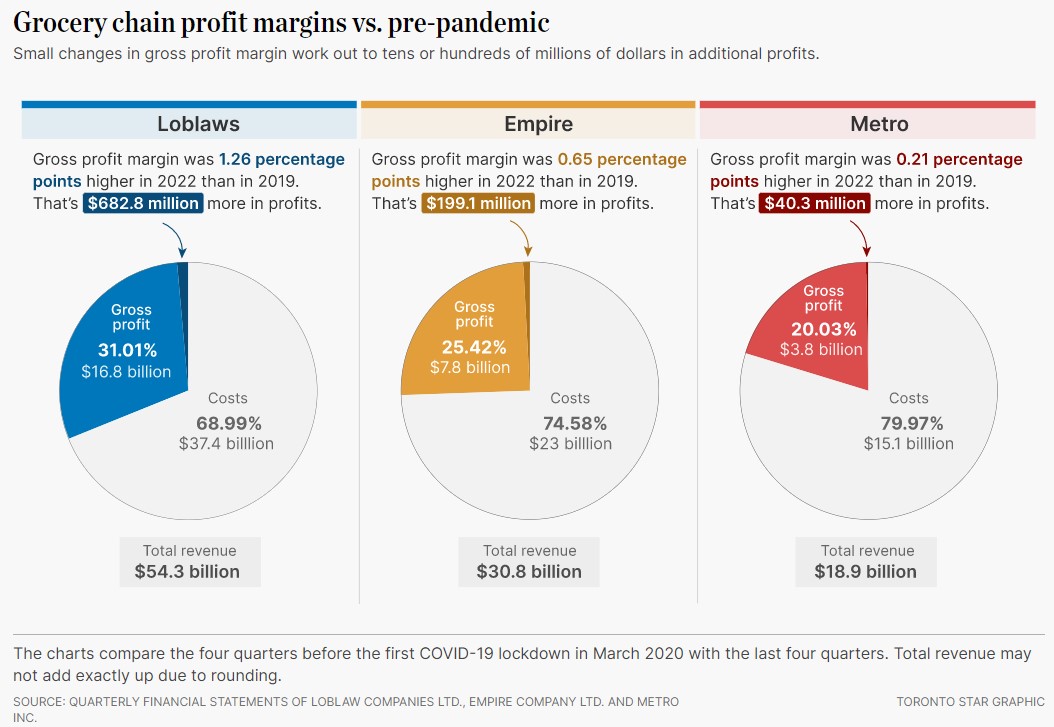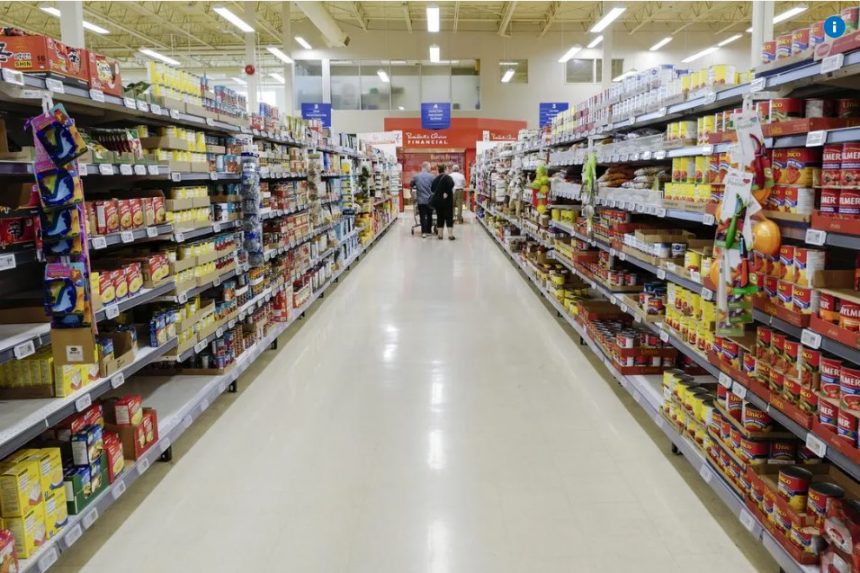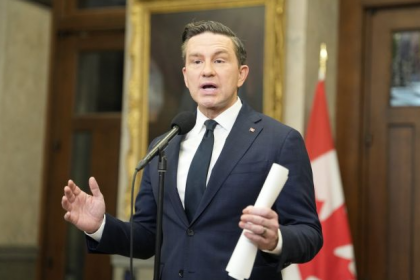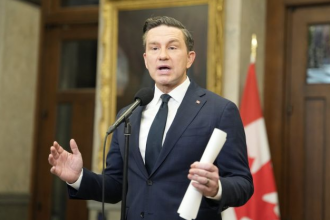Dec. 23, 2022, Toronto: A new analysis has found that Canada’s big three supermarket chains have continued to increase their profits due to record-high grocery prices.
Loblaw, Empire (Sobeys) and Metro have all reported even more enormous profits and profit margins than they did six months ago when the Toronto Star published an investigation into grocery inflation.
If their profit margins had stayed where they were before the first COVID-19 lockdown in 2020, the three supermarket chains would have made almost $1 billion less in gross profit over the past year, according to their published financial statements.
“The supermarkets have made hay on the crisis of the pandemic and everything that’s happened afterward,” said Jim Stanford, an economist and director of the Centre for Future Work, an economic think-tank.
“A combination of supply disruptions, consumer desperation and corporate pricing power has allowed them to increase profits to never-before-seen levels.”
While the big three supermarkets say they are raising their prices only to pass along the increased costs from their suppliers, their financial reports paint a different picture. In the two quarters, grocery prices have reached new highs, and the large corporate food retailers have increased their profit margins even more.
Loblaw posted its biggest gross profit margin yet, 31.4 percent, in the second quarter of this year. The company has now increased its quarterly gross profit over the previous year for 28 straight quarters, that’s seven full years.
In the first three quarters of 2022, Empire posted the three biggest gross profits in its history. Empire has now posted six straight quarters of year-over-year increases in quarterly gross profits.
It’s a similar story at Metro, which reported a gross profit margin of 20.5 percent in its fourth quarter, its best yet. Metro has increased its quarterly gross profit year-over-year for four straight quarters.

David Macdonald, a senior economist with the Canadian Centre for Policy Alternatives, said: “It does appear that the pandemic has put the grocery industry on a new plateau with higher margins. “Inflation, far from eating away at profits in this industry, has likely increased margins.”
Grocery inflation has been accelerating since the middle of last year and hit a 41-year-high of 11.4 percent in November. Grocery prices are now rising faster than everything else except gasoline.
NDP Leader Jagmeet Singh took up the subject both in the House and online, posting a video about “greedflation” and frequently tweeting about it. “It is extremely frustrating to see that while you and your family cut back on the things you need, the major grocery store chains are using this crisis to get richer and richer,” Singh said.
“We’re pushing for the government to launch an affordable and fair food strategy which tackles corporate greed in the grocery sector, which would include increased penalties for price-fixing and strengthening competition, laws to prohibit companies from abusing their dominant positions in a market to exploit consumers.”
After an NDP motion passed unanimously in the House of Commons, a parliamentary committee started investigating the relationship between surging grocery prices and supermarket profits. While MPs have called for the CEOs of the big three supermarkets to testify, the companies have only sent executives lower down their corporate hierarchies to date.
In October, Loblaw announced that it was freezing the prices of its No Name products until the new year. Still, the move backfired when critics pointed out that the prices would be frozen at never-before-seen levels, and its competitor Metro said a price freeze over the holidays was something it did every year.







